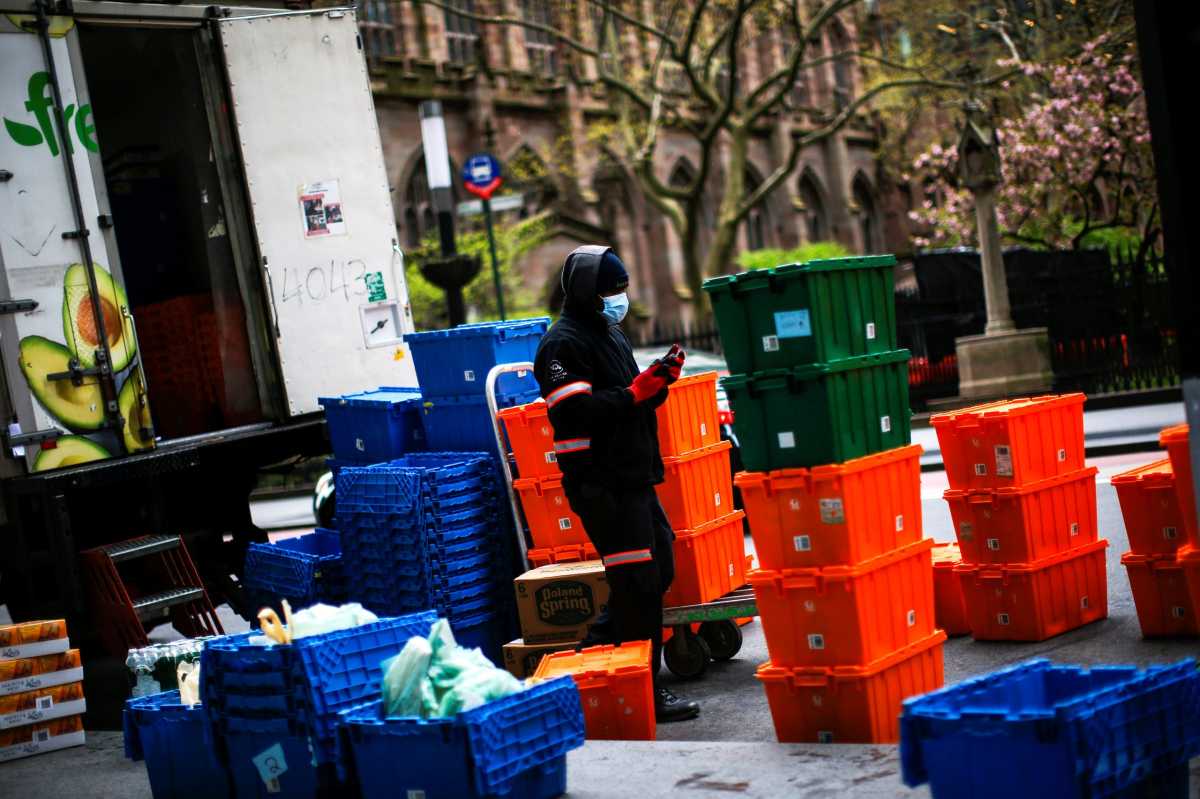By Rich McKay
Some businesses prepared on Thursday to reopen in Georgia and a handful of other U.S. states for the first time in a month, as another week of massive unemployment claims highlighted the grim economic toll of the coronavirus pandemic.
From Tennessee and Texas to Ohio and Montana, states around the country have announced plans to reopen over the next two weeks. Their plans have drawn criticism from health experts and some governors who warn that a premature easing of stay-at-home guidelines could trigger a surge in coronavirus cases.
Maryland Governor Larry Hogan, a Republican who has taken a measured approach to reopening his state to adhere to recommended U.S. guidelines, said more cautious steps now would help the economy longer term while protecting people’s health.
A potential second wave of the coronavirus that could collide with annual influenza months from now was also a serious concern, Hogan, who also chairs the National Governors Association, told Politico in an interview on Thursday.
“It’s factored into our thinking and our planning about why we’re doing it gradually and carefully. If we just were to flip the switch and open things back up like a lot of people want… there’s no question it would be worse and flash back in the fall,” he said.
Nearly 850,000 Americans have been infected and 48,000 have died of COVID-19, the respiratory illness caused by the novel coronavirus, according to a Reuters tally.
In Georgia, Republican Governor Brian Kemp gave the green light to gyms, hair salons, bowling alleys, tattoo and massage parlors to restart on Friday, followed by movie theaters and restaurants next week. South Carolina began to ease restrictions on Monday. Florida opened some of its beaches on Friday night.
Angie Bullman’s suburban Atlanta, Georgia, hair salon will reopen on Friday. She says she and her co-owner husband are fully booked for the weekend.
“We got to get back to work,” Bullman said.
Millions of Americans are feeling her pain. Unemployment figures released on Thursday were a reminder of the devastating economic toll of the unprecedented stay-at-home efforts to stop the spread of the highly infectious coronavirus outbreak.
U.S. Labor Department data showed 26.5 million Americans had sought jobless benefits the last five weeks, meaning all the jobs gained during the longest employment boom in U.S. history have been wiped out by the pandemic’s impact.
MONEY FOR RELIEFMembers of the House of Representatives were due to gather on Thursday to pass a new $484 billion coronavirus relief bill that will bring the total crisis funds approved to nearly $3 trillion.
Republican President Donald Trump has promised to swiftly sign the funds into law.
Trump, who had touted a strong economy as a big reason to re-elect him in November, had been outspoken in supporting an early reopening to get Americans back to work.
But on Wednesday, he shifted gears and broke with Georgia’s governor, saying he strongly disapproved of his plan to reopen some businesses on Friday.
“It’s just too soon. I think it’s too soon,” Trump said at his daily coronavirus briefing.
U.S. Representative Doug Collins, a Georgia Republican and one of Trump’s top supporters in Congress, said the mixed messages were worrying.
“It’s made people nervous. Clear communication is what has to happen. But when you’re telling people to still stay at home but yet we’re going to open certain businesses, that creates a problem in which people are not sure what to do,” Collins told Fox News on Thursday.
Michael Sponsel, 39, owner of Freedom Barber in Atlanta’s Old Fourth Ward neighborhood, said he planned to keep his shop closed.
“No way is it safe,” Sponsel said. “Not for my barbers, not for my customers. We looked at the numbers and they don’t look good.”
Georgia has recorded more than 21,000 cases and nearly 850 deaths.
A number of polls, including a Reuters/Ipsos poll this week, have shown a bipartisan majority of Americans want to stay at home to protect themselves from the coronavirus, despite the impact to the economy.
Only 13% of Americans polled in a CBS News survey released on Thursday said they would definitely return to public places over the next few weeks if restrictions were lifted right now, no matter what the progress of the outbreak.
Almost half — 48% — said they would not return to public places until they were confident the outbreak was over, according to the poll, conducted by YouGov between April 20-22. Another 39% said “maybe,” depending on whether they believed it was getting safer.































